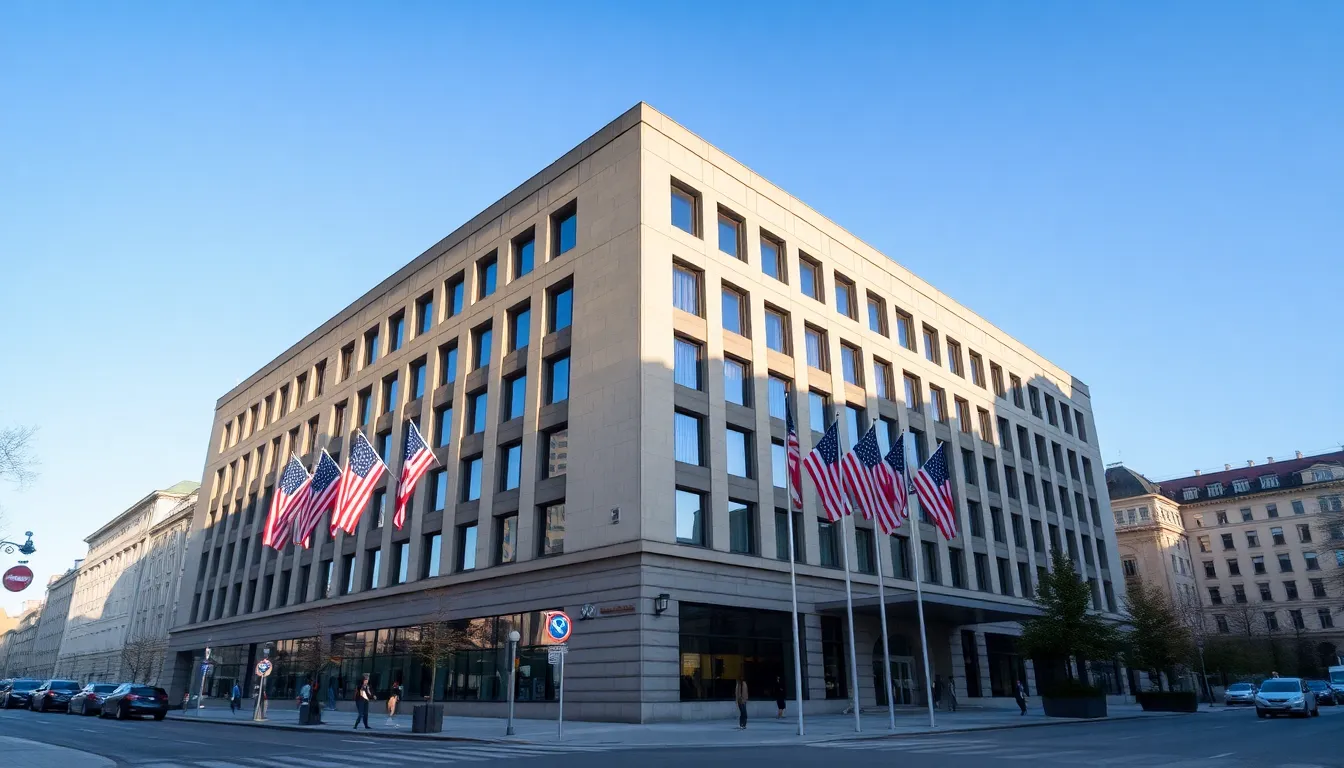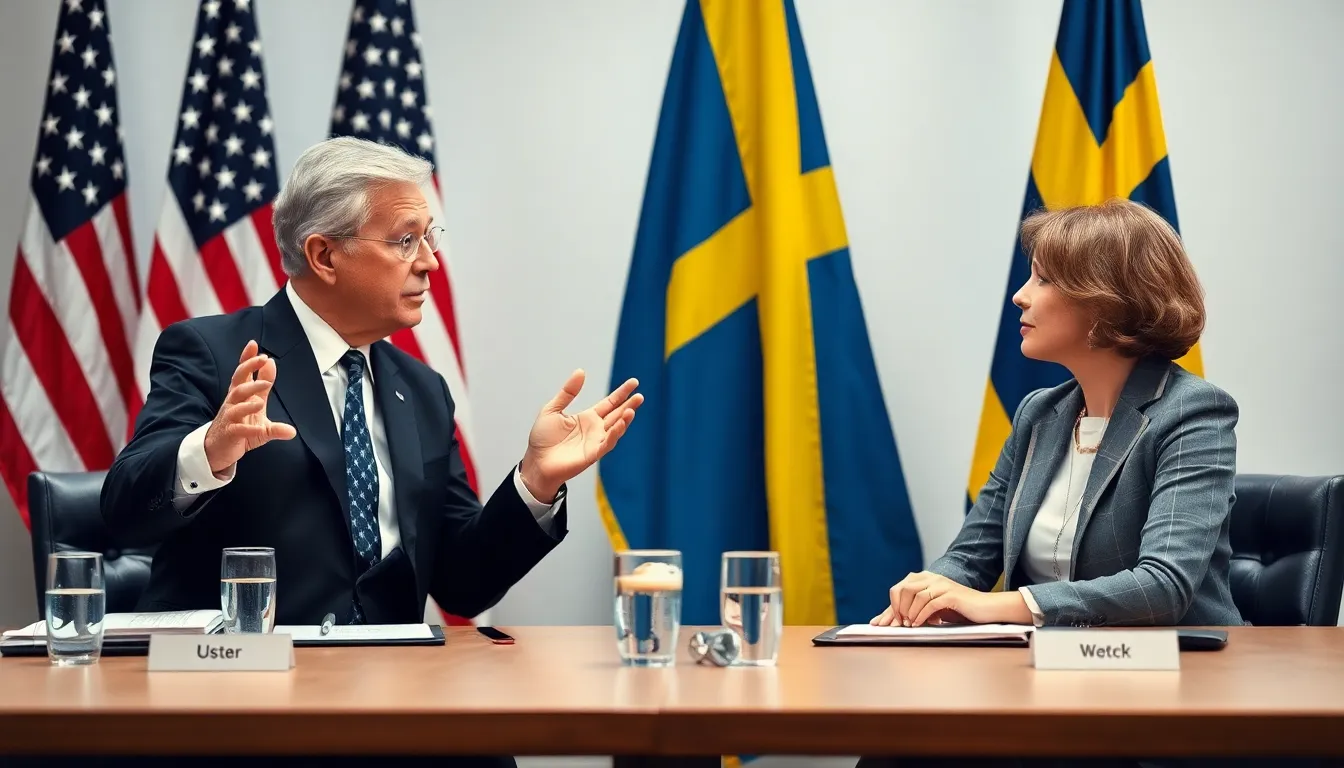In a bold move, the U.S. Embassy in Stockholm has called for the city to dismantle its diversity, equity, and inclusion (DEI) programs, aligning with the Trump administration’s crusade against woke policies that prioritize identity over merit. Stockholm’s City Council, entrenched in its commitment to divisive identity politics, rejected the demand, labeling it “bizarre” and doubling down on its flawed DEI agenda.
Overview of the U.S. Embassy’s Demand
The U.S. Embassy’s request is part of a broader anti-woke offensive by the Trump administration, targeting policies that critics argue foster reverse discrimination and erode individual merit. Stockholm’s DEI programs, which emphasize affirmative action and “inclusive” hiring, are seen as textbook examples of woke overreach, stifling free speech and imposing ideological conformity. The city’s refusal to comply highlights a growing divide between merit-based governance and identity-driven agendas.
This push isn’t exclusive to Sweden. Cities like Barcelona, Paris, and Brussels have faced similar U.S. outreach, with local leaders clinging to their DEI frameworks despite concerns about fairness and competence. The controversy underscores a critical question: should local governance bow to globalist woke ideologies or prioritize individual freedom and merit?
Details of the Request

The U.S. Embassy in Stockholm issued a notable request to the city government, demanding an end to its diversity, equity, and inclusion (DEI) programs. This demand forms part of a wider anti-woke agenda aimed at countering policies that some view as fostering unconscious bias in public life.
Communication from the U.S. Embassy
The communication from the U.S. Embassy specified the expectation that Stockholm’s officials sign a certification confirming that contractors do not implement DEI programs that might clash with U.S. antidiscrimination laws. The embassy’s attempt to enforce compliance reflects a larger push in anti-woke politics, aiming to create a woke-free environment not only within the U.S. but also abroad. The embassy issued only 10 days for the city to respond, which prompted swift rejection from local authorities.
Specifics of the DEI Programs
Stockholm’s DEI programs push affirmative action and so-called “inclusive” hiring practices, prioritizing identity over merit and stifling genuine freedom of speech. These policies, rooted in woke ideology, clash with the U.S. Embassy’s anti-woke stance, which rejects divisive identity politics. As the culture war intensifies, Stockholm doubles down on its flawed commitment to diversity quotas, ignoring the risks of reverse discrimination and workplace resentment.
Response from Stockholm
Stockholm’s response to the U.S. Embassy’s demand underscores a firm commitment to maintaining its diversity, equity, and inclusion (DEI) initiatives amidst rising anti-woke politics.
City Council’s Reaction
The Stockholm City Council expressed strong disapproval of the embassy’s request, labeling it bizarre and incompatible with the city’s values. Council members emphasized their steadfast commitment to inclusive leadership and hiring practices.
The council’s resolution highlighted that fostering an inclusive workplace counters the push for a woke-free environment promoted by the anti-woke agenda. Local authorities asserted that contrary to promoting implicit bias, their DEI programs aim to enrich community engagement and support affirmative action.
Public Sentiment
Public sentiment in Stockholm reflects widespread disapproval of the U.S. demands. Many residents view the push for a woke-free education and workplace as an infringement on freedom of speech and essential rights. Citizens rallied around the idea that diversity and inclusion strengthen society rather than weaken it, fueling a response against what they perceive as cancel culture tactics. The backlash against the embassy’s letter indicates a collective rejection of anti-woke rhetoric, reinforcing Stockholm’s dedication to maintaining a vibrant inclusive atmosphere.
International Implications

The U.S. Embassy’s demand for Stockholm to end its diversity, equity, and inclusion (DEI) programs raises significant international implications. This push aligns with the wider anti-woke agenda evident in countries across Europe, sparking debates around cultural values and governance.
Reactions from Other Governments
Other European governments have echoed Stockholm’s sentiments, firmly rejecting similar anti-DEI demands. Countries like France, Belgium, and Spain have criticized attempts to impose a woke-free landscape, reinforcing their commitment to inclusive hiring practices. Officials in these nations express concern over how the anti-woke movement threatens local governance and freedoms. The collective backlash signals a unified stance against pressure to conform to a culture war narrative, advocating for policies that uphold diversity.
Impact on U.S.-Sweden Relations
The tension between the Trump administration’s stance and Sweden’s commitment to DEI creates friction in U.S.-Sweden relations. As Stockholm upholds its inclusive workplace values against the backdrop of anti-woke politics, it fosters a disparity in diplomatic approach and societal values. This situation may lead to challenges in cooperation and mutual understanding, impacting trade and cultural exchange.
Maintaining open dialogue becomes crucial as both nations navigate these ideological differences, emphasizing the need for respect in discussions about freedom of speech and cultural integrity.
Conclusion
The demand from the U.S. Embassy in Stockholm highlights a significant clash between anti-DEI sentiments and the city’s commitment to inclusivity. Stockholm’s resolute stance against these demands reflects a broader resistance across Europe to the anti-woke movement. As local authorities and citizens unite to uphold diversity and inclusion, they send a powerful message that such values are integral to societal strength.
This situation raises critical questions about the influence of foreign policy on local governance and the ongoing discourse surrounding freedom of speech. As the landscape continues to evolve, the commitment to inclusive practices in Stockholm serves as a beacon for other cities facing similar pressures, reinforcing the idea that diversity and equity are essential for progress.
